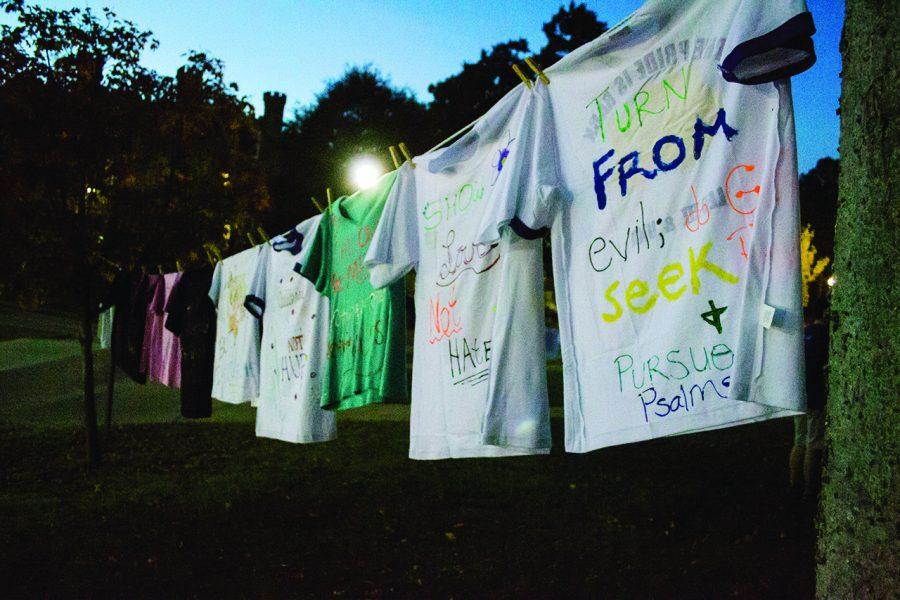Campus organizations petition issues they believe in
April 24, 2016
U.S. citizens have the freedom to petition, and the campus community put this right into action.
Campus organizations such as the Black Student Alliance and the Center for Women’s Studies voice their concerns over inequalities by petitioning issues.
“The right to petition is the right to ask for what you need and the right to ask for your rights, and ensure that you get them,” said Coordinator of the Center for Women’s Studies Emily Kelley.
The right to petition allows people to speak out against the government, said junior Anna Luttrell.
“(The right to petition) is a protection where we see if there is something wrong with the government,” Luttrell said. “We can say, ‘Hey, I don’t like that’ and hold the government accountable. It is just a good system for everyone involved because our officials also know what the people want.”
The Center for Women’s Studies regularly holds demonstrations against many issues, Luttrell said.
“The women’s center has protested things in the past such as violence which we protest with our Take Back the Night event, and we are currently protesting the gender wage gap,” Luttrell said.
In the U.S., a woman earns 77 cents for every dollar a man earns, Kelley said.
“The wage gap is larger in Alabama than the national average,” Kelley said. “In the North, the wage gap is more narrow than the South or Midwest.”
The Black Student Alliance rallies around poverty, race and socioeconomic issues, said Director of Diversity and Institutional Equality and Black Student Alliance Joan Williams.
“(The Black Student Alliance) feel that students should and people should have a voice, lend their voice and unite to bring about positive change,” Williams said.
A unified voice is more powerful, Williams said.
The Student Government Association also frequently exercises the freedom to petition.
SGA President-elect Sarah Green said she believes the First Amendment rights are important to the nation as a whole.
“As the elect, (freedom to petition) is important because I know that I can speak freely on behalf of the student body so that they can be best represented,” Green said. “As an American, it’s kind of humbling to realize that we are granted these rights, but not everyone in the world is.”
Students on campus have the right to petition at UNA, said SGA Vice President-elect of Senate Tyler Delano.
“The United States is built on democracy, and the people ultimately hold the power to vote for whomever to represent them,” Delano said. “The same goes from a student government standpoint. If students are unhappy with something, they reserve the right to petition for change.”
Students can openly petition SGA if they disagree with them, Green said.
“For SGA, that gives us more checks and balance with the students,” Green said. “That is so important because it gives the power to the students not to the members of SGA.”












